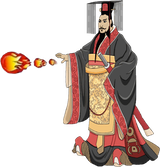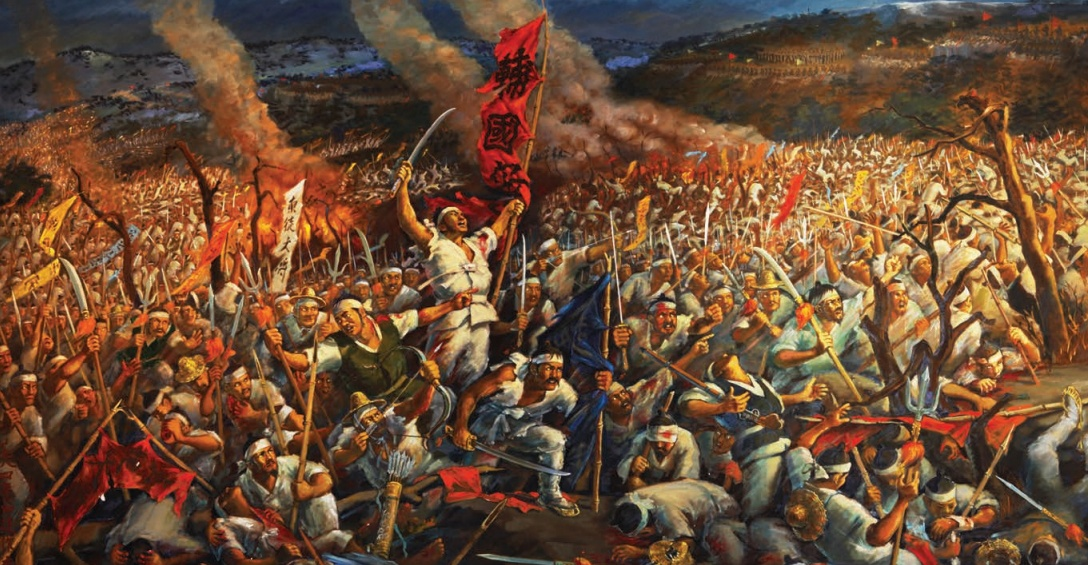On this day in 1894, the anti-colonial Donghak Peasant Rebellion began with the "Gobu Uprising", where 1,000 peasants stormed the county of Gobu, freeing prisoners, occupying government buildings, and causing the county ruler to flee.
The Donghak Peasant Rebellion was an uprising that took place in late Joseon-era Korea during the 1890s. "Donghak" refers to a religious movement, founded in 1860, which preached for social equality and the uplifting of the peasantry. Choe Jeu was executed by the state in 1864.
Amidst a backdrop of growing foreign influence in Korea (which would eventually lead to colonization by Japan), Donghak peasants rebelled against oppression by feudal rulers. The uprising began in the county of Gobu in Jeolla province, where the magistrate had extorted vast amounts of wealth and forced the peasants to build a reservoir.
On January 10th, 1894, approximately 1,000 peasant rebels gathered at an empty horse ranch, from which they split off into two separate armies where they successfully destroyed three of Gobu's four gates, occupied government offices, and set about destroying prisons and freeing the people held in them.
As rebels successfully defeated government forces, unrest would spread across the country, and the panicked Joseon dynasty called for Chinese Qing dynasty for support. Doing this, however, aggrieved the Japanese government, which was competing with China for influence over Korea.
Japan invaded Korea, occupying Seoul, triggering the First Sino-Japanese War. Following a temporary truce, the peasant rebellion would resume in October, this time directed towards the Japanese occupation.
The Japanese proved successful in defeating the uprising, however, continuing to quell rebels through 1895. Korea would become increasingly absorbed into Japan's sphere of influence before official annexation in 1910.
Megathreads and spaces to hang out:
- ❤️ Come listen to music and Watch movies with your fellow Hexbears nerd, in Cy.tube
- 💖 Come talk in the New Weekly Queer thread
- 💛 Read and talk about a current topics in the News Megathread
 Come talk in the New Weekly PoC thread
Come talk in the New Weekly PoC thread- ⭐️ September Movie Nominations ⭐️
reminders:
- 💚 You nerds can join specific comms to see posts about all sorts of topics
- 💙 Hexbear’s algorithm prioritizes comments over upbears
- 💜 Sorting by new you nerd
- 🌈 If you ever want to make your own megathread, you can reserve a spot here nerd
- 🐶 Join the unofficial Hexbear-adjacent Mastodon instance toots.matapacos.dog
Links To Resources (Aid and Theory):
Aid:
Theory:


The Hasidic tunnel story is really bad for the Jewish people. Now every time somebody says something wildly antisemitic like "There are Jews inside your walls", you have to take them 100% seriously because it's entirely within the realm of possibility
Mel brooks holding a stethoscope to a wall looking perplexed as a bunch of brawling Lubavitchers crash through the wall behind him.